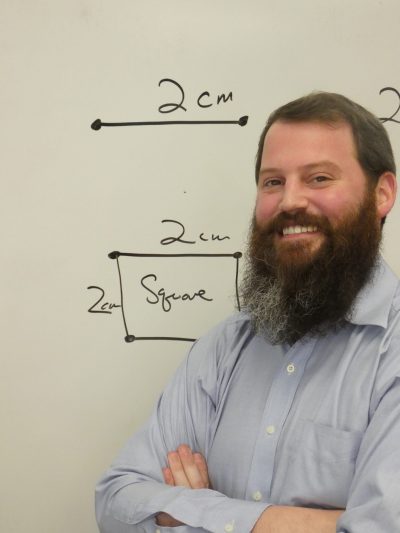Learning the Language of Math
 Written by Tyler Kirk, High School Math Teacher
Written by Tyler Kirk, High School Math Teacher
As the mathematics teacher for high school aged students at the COMPASS school for the last 6 years, I’ve had the opportunity to contemplate and research the purpose of math education. Among numerous personal discoveries, I found that the most successful lessons engaged questions that connected math work in the classroom to other disciplines and real life applications. Often faced with the question, “when will I actually use this (insert literally any math topic) in the real world?” educators are required to think a little outside of the box. I’ll share one way we’ve tackled the question at the COMPASS school.
When I was in highschool I became acutely aware of physical fitness. I noticed direct outcomes between the time I spent in the gym to daily benefits in my physical abilities. Whether I was working or in band class I could literally feel a difference in breath, endurace, and stamina. So I frequented the gym. Picked things up and put them down. No, this wasn’t for the thrill of moving heavy things. Rather, the knowledge that I’d later be able to engage the world around me in a more dexterous and successful way served as motivation.
Well as it turns out, researchers have known for centuries that learning math, much like going to the gym, disciplines the learner’s brain to function in such a way that they become more successful when confronted with the thrills and challenges of living in the world. As students grow and mature to high school age we often find that learning becomes more abstract. To this end, I often find myself encouraging students to engage in math work even if it feels disconnected. In response to the question “when will I use this in the real world?” students are asked “Well, when will you ‘use’ 10 push-ups? How will that help you in everyday life?”
Students are able to think abstractly here. They can identify that the particular technique required to complete a proper push-up does not inform the technique required to make an accurate basketball hoop shot. Still, they can reason that doing push-ups will help them be better at basketball in general. In the same way, students are encouraged to see that while they might not “use” some math work when they have a conversation with an employer, simplifying having learned and practiced algebra for instance can help direct a more logical and mature conversation with an employer, which will yield the most positive results from the interaction. As students begin to turn their focus to a successful and independent future, questions and explanations such as this motivate and encourage. Math affects our daily lives in ways we might not initially imagine.
Let’s rewind to 2010 when the Common Core State Standards initiative for mathematics became a conversation. While there were some attempts for change in mathematics curricula between 1950 and 2010 there was minimal progress. However, in the last 10 years, and for students today, we’ve seen some healthy changes in how we think about math education. Many educator preparation programs and newly developed high school curricula give teachers best practice tools to help students make direct and deep connections in math learning. Connections are drawn between math topics such as algebra and geometry explicitly. Connections are also drawn to the real world. For instance students at COMPASS applied work concerning Euler circuits to predict how long it would take to paint a classroom and the best route a painter would take. Students noticed quickly that knowledge of Euler, and creating a plan before painting, could save a ton of time!
In short, the work of math education at COMPASS, a special education behavioral day school, is similar to math education in any setting. Much of the work is helping students “know” that the hard work they put into learning the language of math has a real and meaningful impact on their future and ability to access the world around them. New standards in math education and technologies empower students to investigate math in new and exciting ways. By embracing new practices, using curricula with technology, simulation, and calculator connections, and engaging well researched methods from the real world, COMPASS empowers students to find value in math education and plan for a future of successful independent living.